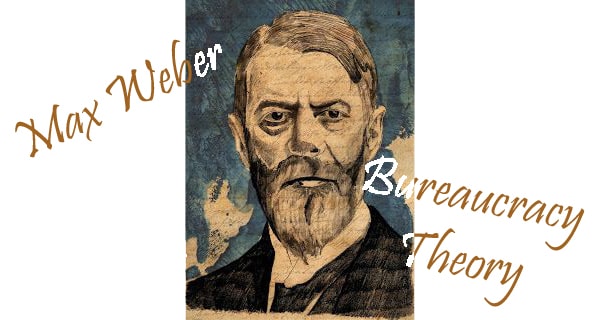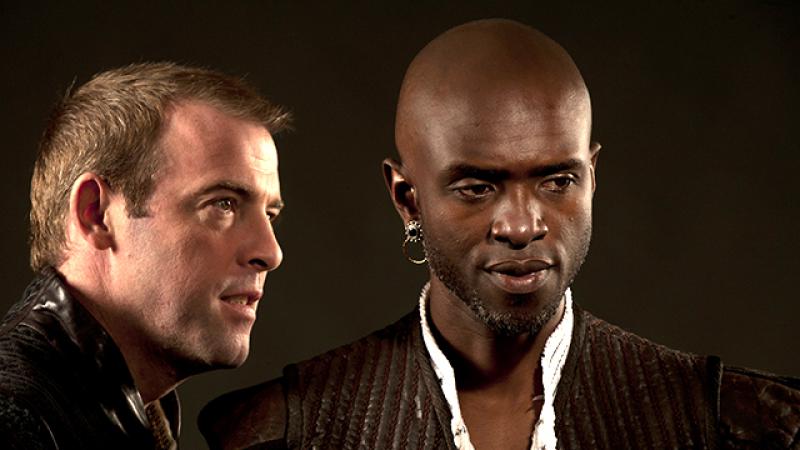
Max Weber is one of the greatest sociologists. He had a considerable influence on the development of this science. He was one of the universally educated minds. The scientist was knowledgeable about the political economy, law, sociology and philosophy. Max Weber acted as a historian of the economy, political institutions and political theory, religion and science, as well as a logician, who developed principles of the cognition of the social sciences. The formation of social and political views and theoretical position of Max Weber was largely determined by the socio-political situation in Germany during the last quarter of the 19th century, as well as the state of science at that time, especially the political economy, history, and social philosophy.
His ideas had an enormous influence on the development of sociology. They include an analysis of social behavior and social action, their typology, the doctrine of ideal types and types of domination, comparative characteristics of various economic, commercial, political, religious, ethical and cultural systems and a lot of others. These days, the work ethic, written by Weber in close connection with the analysis of religious and ethical principles of Protestantism, has not only theoretical but also practical importance, especially in terms of the reduction of motivation that is observed everywhere in the developed capitalist countries.
Place New Order
The major works of Weber include The Protestant Ethic and the Spirit of Capitalism, Some categories of interpretive sociology, Politics as a Vocation, Science as a profession and many others. It is interesting to read Max Weber even today. The questions that he asked still remain relevant for scientists. They are also extremely significant for politicians and public figures, economists and bureaucrats, Europeans and Americans.
In the field of business and management, Weber is best known through his researches of bureaucracy. However, their results ensured the creation of a small part of his more general theory of rationalization of Western society, many beyond the paradigm of the bureaucracy whose elements are of considerable value to scholars concerned with the business and management. In the broadest sense, an issue that Weber affects in his works is why Western society has evolved to a particular form of rationalization and why the rest of the world could not create such a rational system? A distinctive feature of Western rationality is the presence of bureaucracy. However, this conclusion reflects only one, albeit a very important aspect (along with capitalism), of an extensive process of rationalization of society. The concept of rationalization in Weber’s work is quite uncertain. However, the best definition of at least one of its key type – formal rationalization – involves a process in which the choice of people of means of achieving the goal is becoming more limited, if not completely deterministic rules, regulations and laws that have universal application. Bureaucracy as a key area of using these rules, laws and regulations is one of the main results of this rationalization process. However, along with it, there are others such as the capitalist market, the system of rational-legal authority, factories and assembly lines. Their common feature is the presence of formal rational structures that make all members act in a rational manner striving to achieve the goals by selecting the most direct and effective methods. In addition, Weber observed the growth in the number of sectors in society falling under the authority of formal rationalization. Ultimately, he foresaw the emergence of the society, in which people would be enclosed in “the iron cage of rationality” made ??of unbreakable plexus of formally rational structures.
However, in order to treat Weber as a political theorist, people should consider the fact that he created ideal types as the embodiment of the properties that did not occur in the everyday life. Therefore, nowadays, when people try to understand why, in accordance with the external rules, people do not follow them in practice, the allowance should be made for the distinction between the theory and practice and that “one and the same person can be rational, and effective. A modest math teacher proves the theorem of Pythagoras (the most understandable and rational action, according to Weber), and then goes to a meeting or to the front”.
Bureaucracy is a specific form of governance structures and relationships. It is believed that bureaucracy is a negative feature of a state or organization. It is characterized by the formation of a group of people whose interests and goals are different from those of the society. Bureaucracy is characterized by the presence of a privileged layer of workers. As a rule, there is a gap between the executive and legislative branches, impersonal management system, service dependency, and authoritarian consciousness. In society, there is a tendency towards bureaucracy, but such tendencies should be limited. Bureaucracy has certain social characteristics that were analyzed by Marx: 1) the decisions are made by the monopoly officials; 2) the desire for closeness; 3) the use of different privileges; 4) representation of the state as a major source of social order and well-being; 5) red tape and corruption; 6) minimal punishment for the members of power. Weber is known as the founder of the classical theory of bureaucracy, which appeared in all textbooks in the world. He considered bureaucracy in two ways, positive and negative. The epitome of bureaucracy in the positive sense is the state administrative apparatus. Positive bureaucracy represents the high point of a long historical path of the western civilization. In this way, it threw other types of social organization, preferring them bureaucratic. Weber believed in the “ideal type” of the bureaucracy of an organization. It assumed the following properties: 1) management activities are carried out continuously; 2) establishment of a certain level of competence and each individual in the system; 3) the need of a special system of training for officials.
- Our custom writing services includes:
- Plagiarism and AI free custom writing for the best grades;
- CV, resume and cover letters which would
make you successful - Thesis and dissertations writing by academic
authors

Weber saw bureaucracy as an effective form of social organization. He believed that it was necessary because it created discipline, obedience, limitation of liability and selflessness. In sociology, the model has often criticized bureaucracy, which was introduced by Max Weber. Of course, Weber noted the disadvantages of bureaucracy such as ignoring the conflict and lack of flexibility. Important positions in the bureaucratic organization are strictly subordinated to each other and arranged in a hierarchical order. Each officer is responsible for his superiors, their personal decisions, and actions of subordinates. The volume of the power of the executive over the subordinate is clearly identified. His actions are limited to the relevant rules and regulations. Orders are official, not personal. They are an embodiment of general instructions that implement a leader. Historical experience shows that an ideal organization does not exist. Bureaucracy under socialism is related to the administrative-command system with over-centralization in all spheres of public life. The struggle with bureaucracy must go through the development of democracy, people’s participation in making socially significant decisions for the community, improving self-management, and creating a system of public supervision.
Weber introduced the basic principles of the rational bureaucratic organisation:
- Impersonality. Employees of the organisation are personally free and act only within the impersonal duties existing in the organisation.
- The principle of hierarchy. Bureaucracy presupposes the existence of the pronounced hierarchy of positions. The certain position dominates over all subordinate ones and is dependent on positions that are higher in the structure of its organisation. With hierarchical relationships, the employee occupying a specific position can make decisions about employees holding lower positions and submits to the decisions of those on the higher levels.
- A clear division of labour in the field of management. It is the specification of functions of each of the positions. This assumes a strict formal allocation of tasks and responsibilities of employees, who are solely responsible for their duties. A prerequisite for the implementation of this feature is the full competence of workers in each position on a narrow range of issues.
- The rules for the selection of employees. The selection of employees within the social structure of the organisation is carried out solely on the basis of their qualifications. This means that money, kinship and descent, power and relations, and other parameters that are not taken into consideration.
- Rules and regulations. The activity of employees in the organisation is governed by a system of abstract, strictly formal rules. These rules are uniform and universal, and each member of the bureaucratic organisation in his/her activities is governed only by such rules, instructions and regulations.
- The career principle. Bureaucracy is a career structure, in which a promotion is made according to one’s merits or by seniority.
- Wages. The wages of the employee depending on the place he/she occupies in the hierarchy of the organisation.
Weber represented the state bureaucracy as a system of highly qualified professionals of the mental labour with a high social class honour guarantying perfection. According to him, without it, there would be a danger of the monstrous corruption and low moral mores that would jeopardise the pure technical efficiency of the state apparatus. At the same time, a genuine profession of the official should not be the policy.
Nowadays, there is a gradual shift away from the rational model of bureaucracy. More realistic models are offered to describe the bureaucracy as a natural system, where, along with a rational moment, irrational, personal, informal moments play a significant role. The main problem of bureaucracy today is a process of politicization. The classical bureaucracy was focused on the public interest and convinced that public problems should be resolved on a purely business basis. The modern politicised bureaucracy openly focuses on various political pressure groups trying to solve problems in the process of political negotiations and using a pluralistic security zone (parliament, parties and lobbying). Some political scientists argue that the modern bureaucracy even tries to run policy. In contrast to the “ideal model”, the modern concept of bureaucracy involves very complex characteristics. First of all, it is due to the fact that bureaucracy today actively uses the modern information technologies that are expeditious means of rationalising management activities.
Reading Max Weber, it is easy to see that modern times represent not many new occasions for reflection. At each change of the model of the state and social structure, scientists try to understand what keeps people together, and why one authority is rejected, while the other, on the contrary, is adopted. Major political changes took place in the late 19th century. Some of them are taking place nowadays. The most famous political concept of Max Weber is associated with the distinction of different types of domination. There is the traditional type (established by the custom), charismatic (intending the adherence for a strong leader) and legal (based on the concept of the legality of the established orders). These ideal types can be legitimate in one country at different times. According to Weber, in the course of the history, there has been a more rational attitude toward the authority. This approach rejects the notion that some people accept only a traditional or charismatic domination. However, the movement from one type of domination to another is not as linear as it might seem. After the bureaucratic legal rule, the country can take a charismatic leader and vice versa. Nonetheless, both as in the days of Weber and in modern times, it is essential to understand how a rational attitude to the power is formulated. According to his principal works, relations in the economic sphere are the cells, from which a legal type of domination develops. This does not mean that, like Marx, Weber saw the economy as a basis for establishing a relationship, but rather refers to the fact that economic relations are assumed to be rational, and the legitimacy of bureaucratic systems can be built on the developed economic principles. It is easy to find the confirmation of this in contemporary politics, both at the level of the attitude of the citizens of individual states and in international relations.
One of the major works of Max Weber is The Protestant Ethic and the Spirit of Capitalism. According To Weber, religion is not an ideology generated by the economic interests. Religion has made possible the emergence of modern capitalism. The focus of Weber’s idea is Protestantism in its ascetic form. According to him, the Calvinist doctrine of the predestination encouraged believers to demonstrate their belief through the active commercial activities and participation in the accumulation of worldly goods. Thus, Protestantism has led to the emergence of work ethic. Hard work became valued and not just the results. Furthermore, Protestantism obliged its followers to a moral behavior not only in the family. This played a crucial role in the formation of the society based on the mutual trust. However, it is reasonable to argue that most modern economists do not accept Weber’s thesis seriously – like any cultural explanation of the economic growth. The question of how Weber’s picture of the modern world is relevant today deserves a more careful consideration. In many ways, of course, it has confirmed with the deadly accuracy: rational, “scientific” capitalism spreads across the planet bringing the material progress in many regions of the world and rallying it together in an “iron cage”, which is called the globalization. However, nowadays, religion and religious passion did not fade away. A manifestation of this is not only militant Islam, but also the global rise of Protestant evangelism, which, at least from a quantitative point of view, is able to compete with Islamic fundamentalism as a source of genuine religiosity. The revival of interest in Hinduism in India, the emergence of the movement “Falun Gong” in China, the continuing influence of religion in America suggests that secularization and rationalism can hardly be considered the same important concepts of modernity.
What are you waiting for?
Order with 15% discount NOW!

Weber’s ideas permeate the entire edifice of the modern sociology constituting its foundation. Weber’s creative legacy is enormous. He contributed to the theory and methodology, laid the foundations of industry trends of sociology: bureaucracy, religion, city and labour. Summarising the review of sociological ideas and views of Max Weber, it should be noted that they, perhaps more than any other heritage of the late 19th – early 20th century, attract the attention of modern scholars. Weber did not leave any school after him. He did not have personal authoritative disciples, who would develop his views. However, understanding sociology, the doctrine of ideal types and the theory of social action, the idea of ??communication economy, ethics and religion were so in tune with the objectives of the society and time that the name of Max Weber firmly established in the science of sociology by taking its rightful place in it.





